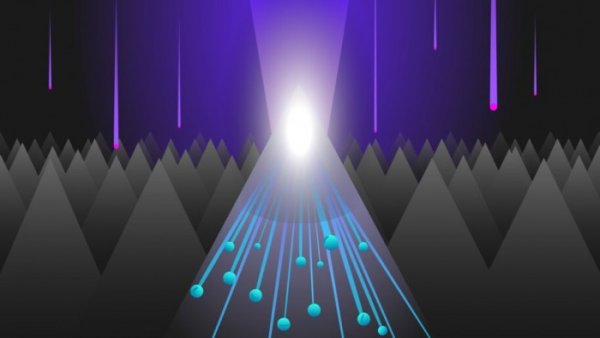
According to a recent report by the physicist organization network, Finnish researchers have developed a black silicon photodetector with an external quantum efficiency of 130%. This is the first time that the efficiency of photovoltaic devices has exceeded the theoretical limit of 100%. It is expected to greatly improve photodetection. The efficiency of equipment, and these equipment are widely used in cars, mobile phones, smart watches and medical equipment.
A photodetector is a sensor that can sense light or other electromagnetic energy. It can convert photons into electric current, and the absorbed photons form electron-hole pairs. Photodetectors include photodiodes and phototransistors. Quantum efficiency is used to define the percentage of photons received by photodetectors on the light-receiving surface that are converted into electron-hole pairs. That is, the quantum efficiency is equal to the photo-generated electrons divided by the number of incident photons.
When an incident photon generates an electron to an external circuit, the external quantum efficiency of the device is 100% (previously considered the theoretical limit). In the latest research, the efficiency of the black silicon photodetector is as high as 130%, which means that one incident photon generates approximately 1.3 electrons.
Aalto University researchers said that the secret weapon behind this major breakthrough is the process of charge carrier multiplication in the unique nanostructure of black silicon photodetectors, which is triggered by high-energy photons. Previously, due to the existence of electrical and optical losses reducing the number of collected electrons, scientists have not been able to observe this phenomenon in actual equipment. Research leader Professor Hera Seven explained: "Our nanostructured devices have no recombination or reflection loss, so we can collect all the multiplied charge carriers."
The Institute of Physics and Technology of the German National Metrology Institute (PTB) has verified this efficiency. PTB is the most accurate and reliable measurement service organization in Europe.
The researchers pointed out that this record efficiency means that scientists can greatly improve the performance of photoelectric detection equipment.
Dr. Miko Juntuna, CEO of Elfys Inc, a company affiliated to Aalto University, said: "Our detectors have attracted widespread attention, especially in the fields of biotechnology and industrial process monitoring." It is reported that they have begun to manufacture this The detector is used in the commercial field. (Reporter Liu Xia)
A Face Shield, an item of personal protective equipment (PPE), aims to protect the wearer's entire face (or part of it) from hazards such as flying objects and road debris, chemical splashes (in laboratories or in industry), or potentially infectious materials (in medical and laboratory environments).
Face Shield,Protective Face Shield,Kids Face Shield,Adjustable Face Shield
Dongguan Yibao Technology Co., Ltd. , https://www.yibaomedical.com